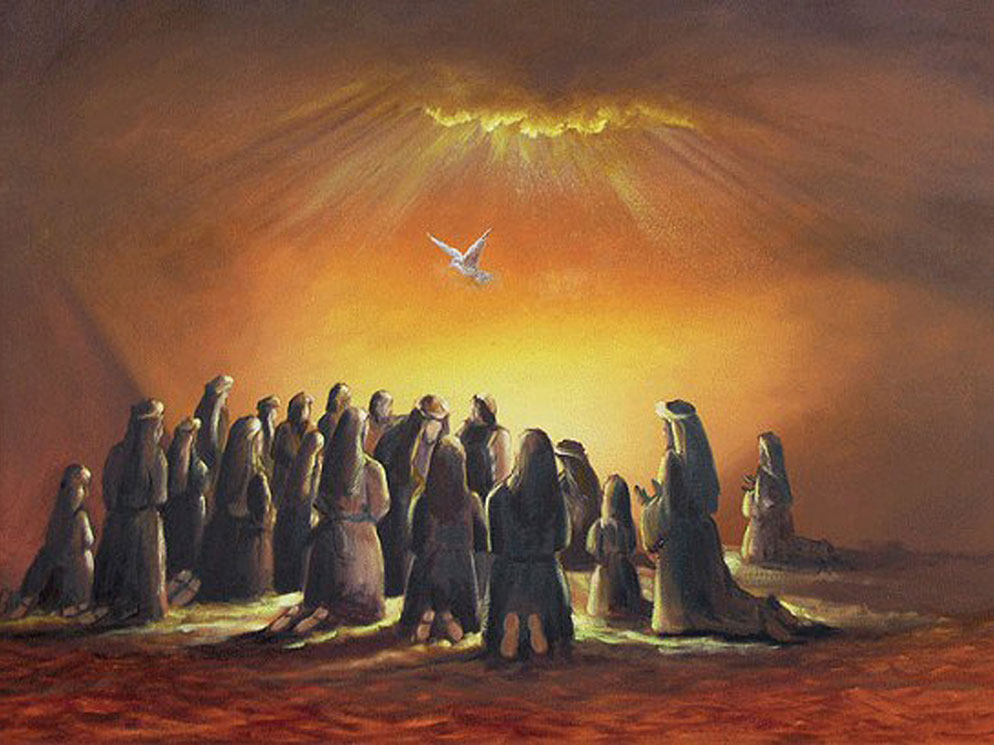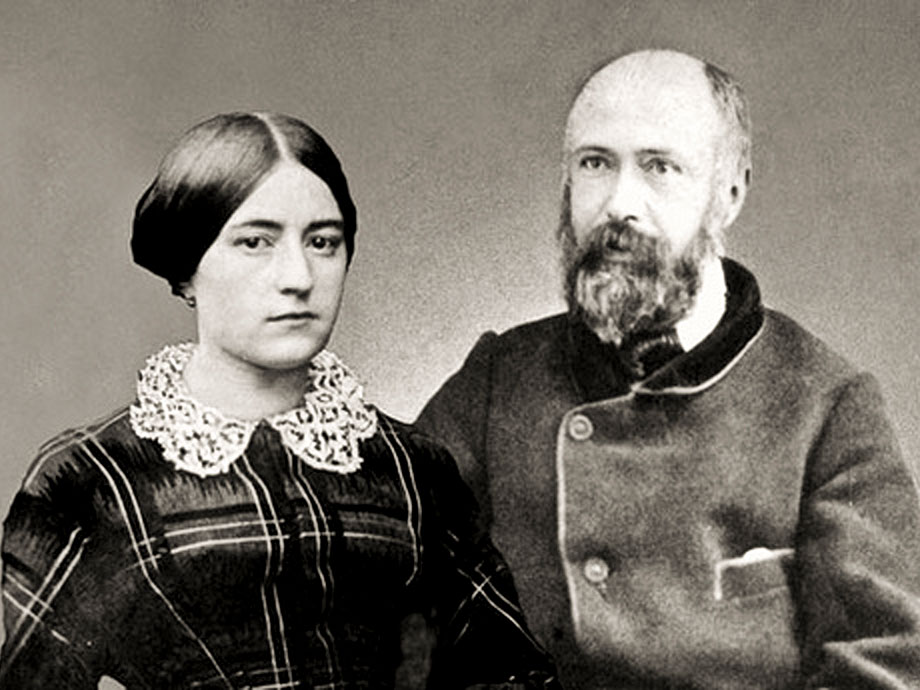To precisely define a specific word is always a work in progress. One does not normally communicate with words alone but with expressions within a context. Eventually, by careful reading, a pronounced meaning belonging to the word within such context is unveiled. It would not be too much to assert that the word is as good as how it is employed. Having this concern at the back of one’s mind, the task of understanding the meaning of joy in the canonical gospels proves to be more challenging but worthwhile, nonetheless. For starters, there are words of similar nature to joy that are a commonplace in Scripture. “Rejoicing” and “greetings” (Greek: chairo) are two examples of these occurrences. They, too, effectively express, oftentimes in verbal form, a nuance of the term. To simplify things, this article shall focus on the noun “joy” (Greek: chara) in the various contexts where it is used in the four canonical gospels.
JOY AT THE BIRTH OF JESUS
Understandably, only Matthew and Luke carry this theme in their narratives since the other Gospel accounts do not include any infancy narrative. It may be said that, in the two narrations, the Gospel commences with the birth of the Son of God. In Mt 2:10, the author vividly contrasts the wise men’s gladness against the darkness and deception occurring in Herod’s Jerusalem. Joy is connected to a choice: between staying with Herod’s group (knowing the prophecy without seeking for it) and journeying with the Magi who freely sought out the newborn King of the Jews.
There seems to be an essential reinforcing of this act of rejoicing by describing it rather repetitiously in Greek as “rejoicing with great joy” (echáresan charàn megálen). This journey, uprooting these seekers from their faraway homes, attests to a spontaneous yet committed decision. In short, gladness is the characteristic of their pilgrimage, the culmination of which is their worship before the Baby Jesus.
Not to be outdone, Luke’s Gospel offers a glimpse of the cosmic celebration that ensued at the birth of Jesus Christ (“Glory to God in the heavens and peace on earth.”) Yet, before charmingly recounting the Messiah’s birth, it narrates another source of joy: the birth of John the Baptist (Lk 1:14). An emerging element can be discerned. The author appears to be reminding the readers that this event is not just a mere family affair. On the contrary, it is meant to make the “many” rejoice. The joy given by the gift to the family of Elizabeth and Zechariah overflows to the community. It is as if confirming whatever grace God has given has a communitarian dimension. Joy pours out to others.
Now, if this is a basic element in the precursory narrative, one expects that the same theme will be taken into the main story. Thus, this is loudly echoed in Luke’s account of Jesus’ birth. The angel who appeared to the shepherds persuasively reiterated such proclamation: “Great joy, which will be for all people (Lk 2:10).” Both happy events have significant repercussions to all. As one may clearly see, the joy of Jesus’ birth is for the whole world to encounter. It is joy for all peoples. This is Luke’s universalism at work.
There was a preview of this earlier in the narrative of Luke. The Virgin Mary’s Annunciation clearly captures this joy at work in the narrative. The greeting “hail” (chaire) exquisitely declares gladness as having a definite source, that is, “the Lord is with you.” The birth, therefore, of Jesus Christ is a veritable source of joy for it is a decisive choice of God to be with humanity.
JOY IN THE KINGDOM OF GOD PROCLAIMED BY JESUS
Within the Gospels, the succeeding mention of the term “joy” occurs in the parables pertaining to the Kingdom of Heaven or God. In Mt 13:20, joy is connected to the hearing of the Word as recounted in the parable of the sower. In a similar fashion, it is also narrated in Mk 4:16 and Lk 8:13. Within the same context of receiving the Word, Jn 17:13-14 underlines the fullness of joy.
There is, however, one unfortunate element in Matthew’s story. Joy did not last long for it is without root and, consequently, did not bear the anticipated fruit. This interesting combination of joy and disappointment is the consequence of the hearers’ falling-out in moments of trials and tribulations. The lack of commitment to what was heard produced a dismal result. It is valuable to reflect on this: joy lasts when there is the presence of fidelity especially in moments of difficulty. In the context of the parable of the sower, gladness and faithfulness bring forth abundant harvests for the Kingdom.
Matthew 13:44 lifts up the gloomy clouds of seeming frustration. Here, joy appears to be authentic and all embracing: “The Kingdom of Heaven is like a treasure buried in a field, which a person finds and hides again, and out of joy goes and sells all that he has and buys that field.” This parable of the Kingdom of Heaven is unique to Matthew’s account. In this circumstance, happiness pierces through the being of the seeker. Perhaps, the very reason for his stunning response of “selling everything he has” in order to purchase the land springs from the element of unexpectedness. It was not part of his plan and neither did he know about it. This gladness is so strong that it worked wonders: the man finds his priority. Such a portrayal can only be the right description of the reign of heaven: finding the Kingdom springs forth from divine initiative and graciousness. No one merits it but God, out of compassion, invites those who are willing. In this reign of heaven, gladness is far from abstract. It is the very sharing of the “Master’s joy.” In Mt 25:21.23, what the faithful servants gained was not only the praise of their Lord but His trust (cf. Lk 19:17.19, “taking charge of cities”). Commitment and fidelity blossom into joy; and joy takes on the form of sharing in the Lord’s glory: if we persevere, we shall also reign with Him (2 Tim 2:12). Moreover, in Jn. 15:11, it is the wish of Jesus that His joy may be in the disciples so that their joy may be full. The sharing of the Master’s gladness is the completion of blessing.
One must not forget, however, that this promise of the Kingdom’s joy is already echoed in the proclamation of the Beatitudes (Mt 5:3-12, Lk 6:20-23). “Blessed” (makárioi) is a description of a person’s gladness, founded in gratuitous favor, shown by a power greater than his. In this case, humans are privileged recipients of divine favors. Clearly, then, joy rooted on the Kingdom (expressed in one’s taking the path of the Beatitudes) is solely an initiative of God endowed on the person disposed and open to such a grace.
JOY AT THE RESURRECTION OF JESUS
How can one forget the Christian joy budding forth from the Resurrection of the Lord Jesus? In the recounted stories of the Risen One, joy is juxtaposed with the emotions of fear (Mt 28:28) and of incredulity (Lk 24:41). In both circumstances, joy appears to be the original element, present as well in Jn 20:19. This gladness goes hand in hand with the unveiling of the presence of Jesus – meeting, seeing, touching. It is very probable this prevalent placing side by side of apparent opposing feelings among disciples is a manifestation of a progressing appreciation of the message and the person of Jesus. In a way, gradualness is a requisite to truly comprehend this historic event. So that it may not be misunderstood, Jn 16:21-24 lays down the necessary seedbed of “mourning and weeping” as the locus from which the joy of the Resurrection breaks forth. Following the logic of the fourth Gospel, Christian joy is never the joy of the world that is inimical to Jesus. On the contrary, it is gladness of seeing Him again and such joy “no one will take away from you.” This assured permanence is synonymous to the enduring power of the Resurrection.
Therefore, joy, as illustrated in the four accounts of the Gospel, is none other than gladness rooted in the very message and person of Jesus. What emerges from all these portrayals is Jesus, the Good News. He is the joyful event, the bursting spring from which all other authentic forms of gladness ought to drink. Consequently, the Church’s call to evangelization takes on a very distinct focus: to let the world see and encounter Jesus. Apart from Him, the human longing for happiness is rendered superficial, temporary, and burdensome.
































